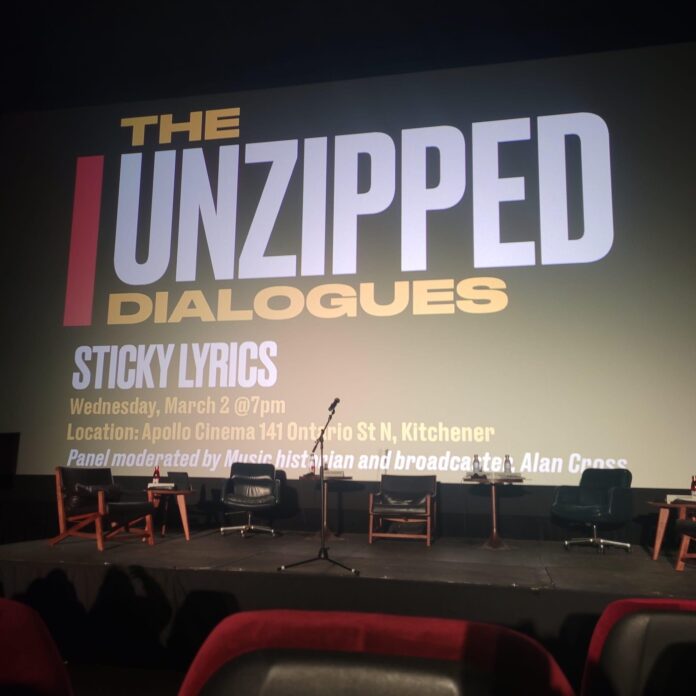As part of their Rolling Stones exhibit, UNZIPPED, TheMuseum organised a panel discussion on “Sticky Lyrics.” The discussion focussed on controversial and inappropriate song lyrics in some of the popular songs of the past and was moderated by music historian and former radio broadcaster, Alan Cross.
Other panellists included singer-songwriter Julian Taylor, Alyssa Woods, a professor at the University of Guelph’s School of Fine Art and Music and Nicola Rose, Managing Editor of Imprint.
The discussion brought forward some interesting points regarding where the line is drawn in terms of controversial lyrics. “Lyrics don’t exist in a vacuum,” explained Woods. In her opinion, any lyrics that have the broader potential to hurt people by spreading hatred and bigotry or raising body image issues are problematic.
Rose agreed with the sentiment and added that she believed “sticky lyrics” are those that “upheld existing systems of oppression.”
Taylor added that anything which insinuated violence was not okay. “If thoughts could kill, there’d be nobody here,” he said.
However, there was consensus among the panellists that they do not believe that usage of curse words makes songs in any way problematic or ‘sticky.’ Taylor stated that sometimes certain songs, as well as the context of these songs, call for more explicit words to be used. He gave the example of how songs like Fuck tha Police played an important part in making white America aware of the police brutality against black people in the United States.
Another point on which the panel agreed was that they were not in favour of censorship. They explained how there is a line between calling out a person’s beliefs as problematic and outright censoring art.
The topic of censorship prompted an interesting discussion when Cross brought up the example of how he received a call from a woman when he was a radio broadcaster asking him to stop playing a song that talked about domestic violence, as the song was triggering to her and possibly to other victims of domestic violence as well.
Cross asked the panellists what they believed the correct response to the situation would’ve been and Taylor responded that he would pull that song off the radio. Taylor noted that pulling the song from the radio or removing it from more public display wouldn’t be the same as censoring it, as fans could still buy records and CDs or stream the song.
While talking about triggering lyrics and domestic violence, the conversation moved to The Chicks’ Goodbye Earl. While the song addresses domestic violence and has often been highlighted as controversial in the past, Rose talked about how she doesn’t see anything wrong with the song. She explained her view that it is a song about “women taking their power back.”
This comment brought forth interesting discourse on how songs that seek to raise awareness of issues such as domestic violence can also be triggering to some.
Towards the end of the discussion, the talk moved to the Rolling Stones and some of their more controversial lyrics. The chief example used was that of Brown Sugar, a song in which the singer lusts after a young slave girl. The panellists acknowledged that the Rolling Stones were provocative on purpose, with Cross saying, “they were sexist pigs and they were proud of it.”
Woods added that lots of rock bands in the 60s and 70s emulated what the Stones did, reiterating that “lyrics don’t exist in a vacuum.”
Taylor expanded on Woods’ point, addressing the effects of corporate influence on music and the popular music industry. “In the 70s, everyone in offices were dudes,” he said, and talked about how that gender imbalance played a part in ensuring misogynistic lyrics could thrive.
































